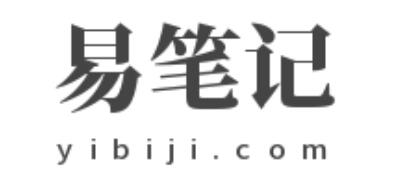水平居中
inline 或inline-* 元素(像text 或link)
block level 元素
多个block level 元素
垂直居中
inline 或inline-* 元素(像text 或link)
单行
多行
block level 元素
元素的高度已知
元素的高度未知
使用flexbox
水平垂直居中
固定宽高元素
未知宽高的元素
使用flex
使用grid
水平居中
inline 或inline-* 元素(像text 或link)
可以在块级别的父元素中水平居中inline 元素,只需:
.center-children {
text-align: center;
}
inline、inline-block、inline-table、inline-flex 都可以居中。
block level 元素
设置块级元素的margin-left和margin-right 为auto进行居中(并且它有一个已知的width 值,否则它将是全宽展示,不需要居中)。 通常使用下面的缩写来完成的:
.center-me {
margin: 0 auto;
}
不管需要居中的块级元素的宽度或父级的宽度如何,上述代码都可以。
主要,你不能使用float进行元素居中。 虽然这有一个技巧。
多个block level 元素
如果需要将两个或多个的块级元素在 一行中 水平居中,那么你可能最好设置一个不同的display类型。 下面是使它们成为内联块的示例以及使用flexbox的示例:
I'm an element that is block-like with my siblings and we're centered in a row.
I'm an element that is block-like with my siblings and we're centered in a row. I have more content in me than my siblings do.
I'm an element that is block-like with my siblings and we're centered in a row.
I'm an element that is block-like with my siblings and we're centered in a row.
I'm an element that is block-like with my siblings and we're centered in a row. I have more content in me than my siblings do.
I'm an element that is block-like with my siblings and we're centered in a row.
body {
background: #f06d06;
font-size: 80%;
}
main {
background: white;
margin: 20px 0;
padding: 10px;
}
main p {
background: black;
color: white;
padding: 15px;
max-width: 125px;
margin: 5px;
}
.inline-block-center {
text-align: center;
}
.inline-block-center p {
display: inline-block;
text-align: left;
}
.flex-center {
display: flex;
justify-content: center;
}
除非你的意思是你有多个块级元素堆叠在一起,在这种情况下,仍然可以通过设置margin 来居中:
I'm an element that is block-like with my siblings and we're centered in a row.
I'm an element that is block-like with my siblings and we're centered in a row. I have more content in me than my siblings do.
I'm an element that is block-like with my siblings and we're centered in a row.
body {
background: #f06d06;
font-size: 80%;
}
main {
background: white;
margin: 20px 0;
padding: 10px;
}
main p {
background: black;
margin: 0 auto;
color: white;
padding: 15px;
margin: 5px auto;
}
main p:nth-child(1) {
width: 200px;
}
main p:nth-child(2) {
width: 400px;
}
main p:nth-child(3) {
width: 125px;
}
垂直居中
CSS 中垂直居中是一个棘手的问题。
inline 或inline-* 元素(像text 或link)
单行
有时inline / text 元素可以出现垂直居中,只是因为paddig-top 等于padding-bottom。
.link {
padding-top: 30px;
padding-bottom: 30px;
}
如果出于某种原因,padding不是一个选项,并且你尝试将一些已知不会换行的文本(单行)居中,则有一个技巧是使height等于line-height将使文本居中。
.center-text-trick {
height: 100px;
line-height: 100px;
white-space: nowrap;
}
多行
paddig-top 等于padding-bottom也可以为多行文本赋予居中效果,但如果这样做不起作用,那么文本所在的元素可能是table cell,无论是字面上的还是与行为类似的CSS。 在这种情况下,vertical-align属性处理这个问题,与通常所处理的不同,它处理排在一行上的元素的对齐方式。 (更多内容。)
I'm vertically centered multiple lines of text in a real table cell.
I'm vertically centered multiple lines of text in a CSS-created table layout.
body {
background: #f06d06;
font-size: 80%;
}
table {
background: white;
width: 240px;
border-collapse: separate;
margin: 20px;
height: 250px;
}
table td {
background: black;
color: white;
padding: 20px;
border: 10px solid white;
/* default is vertical-align: middle; */
}
.center-table {
display: table;
height: 250px;
background: white;
width: 240px;
margin: 20px;
}
.center-table p {
display: table-cell;
margin: 0;
background: black;
color: white;
padding: 20px;
border: 10px solid white;
vertical-align: middle;
}
如果tabel-like 布局过时了,也许你可以使用flexbox? 一个单独的flex-child 可以很容易地在flex-parent 中居中。
.flex-center-vertically {
display: flex;
justify-content: cnter;
flex-direction: column;
height: 400px;
}
I'm vertically centered multiple lines of text in a flexbox container.
body {
background: #f06d06;
font-size: 80%;
}
p {
background: white;
width: 240px;
margin: 20px;
}
.flex-center {
background: black;
color: white;
border: 10px solid white;
display: flex;
flex-direction: column;
justify-content: center;
height: 200px;
resize: vertical;
overflow: auto;
}
.flex-center p {
margin: 0;
padding: 20px;
}
记住,只有父容器具有固定高度(px,%等),那么它才真正相关,这就是为什么这里的容器有一个高度。
如果这两种技术都过时了,你可以使用“鬼元素(ghost element)”技术,在这种技术中,一个全高度的伪元素被放置在容器中,并且文本与其垂直对齐。 .ghos
t-center {
position: relative;
}
.ghost-center::before {
content: " ";
display: inline-block;
height: 100%;
width: 1%;
vertical-align: middle;
}
.ghost-center p {
display: inline-block;
vertical-align: middle;
}
I'm vertically centered multiple lines of text in a container. Centered with a ghost pseudo element
body {
background: #f06d06;
font-size: 80%;
}
p {
background: white;
width: 240px;
height: 200px;
margin: 20px;
color: white;
resize: vertical;
overflow: auto;
padding: 20px;
}
.ghost-center {
position: relative;
}
.ghost-center::before {
content: " ";
display: inline-block;
height: 100%;
width: 1%;
vertical-align: middle;
}
.ghost-center p {
display: inline-block;
vertical-align: middle;
width: 190px;
margin: 0;
padding: 20px;
background: black;
}
block level 元素
元素的高度已知
不知道网页布局的高度是很常见的,原因很多:如果宽度改变,文本重排可以改变高度。 文字造型的差异可以改变高度。 文字数量的变化可以改变高度。 具有固定宽高比的元素(如图像)可在更改大小时更改高度, 等等。
但是如果你知道高度,你可以像这样垂直居中:
.parent {
position: relative;
}
.child {
position: absolute;
top: 50%;
height: 100px;
margin-top: -50px; /* account for padding and border if not using box-sizing: border-box; */
}
I'm a block-level element with a fixed height, centered vertically within my parent.
body {
background: #f06d06;
font-size: 80%;
}
main {
background: white;
height: 300px;
margin: 20px;
width: 300px;
position: relative;
resize: vertical;
overflow: auto;
}
main p {
position: absolute;
top: 50%;
left: 20px;
right: 20px;
height: 100px;
margin-top: -70px;
background: black;
color: white;
padding: 20px;
}
元素的高度未知
将top 设置为50% 之后,可以通过将它的高度调高一半来使它居中: .par
ent {
position: relative;
}
.child {
position: absolute;
top: 50%;
transform: translateY(-50%)
}
使用flexbox
没有什么大惊喜,这在flexbox中更容易。
.parent {
display: flex;
flex-direction: column;
justify-content: center;
}
水平垂直居中
你可以以任何方式将上述技巧结合起来,以获得完美居中的元素。 但我发现这通常分为三个阵营:
固定宽高元素
在将其绝对定位在50%/ 50%后,使用等于该宽度和高度的一半的负边距,获得完美的跨浏览器支持水平垂直居中:
.parent {
position: relative;
}
.child {
width: 300px;
height: 100px;
padding: 20px;
position: absolute;
top: 50%;
left: 50%;
margin: -70px 0 0 -170px;
}
未知宽高的元素
如果不知道宽度或高度,则可以使用transform属性,在两个方向上的50%负向平移(它基于元素的当前宽度/高度)居中:
.parent {
position: relative;
}
.child {
position: absolute;
top: 50%;
left: 50%;
transform: translate(-50%, -50%);
}
I'm a block-level element of an unknown height and width, centered vertically within my parent.
body {
background: #f06d06;
font-size: 80%;
padding: 20px;
}
main {
position: relative;
background: white;
height: 200px;
width: 60%;
margin: 0 auto;
padding: 20px;
resize: both;
overflow: auto;
}
main p {
background: black;
color: white;
width: 50%;
transform: translate(-50%, -50%);
position: absolute;
top: 50%;
left: 50%;
padding: 20px;
resize: both;
overflow: auto;
}
使用flexbox
使用flexbox 实现水平垂直居中,需要使用两个居中属性:
.parent {
display: flex;
justify-content: center;
align-items: center;
}
I'm a block-level-ish element of an unknown width and height, centered vertically within my parent.
body {
background: #f06d06;
font-size: 80%;
padding: 20px;
}
main {
background: white;
height: 200px;
width: 60%;
margin: 0 auto;
padding: 20px;
display: flex;
justify-content: center;
align-items: center;
resize: both;
overflow: auto;
}
main p {
background: black;
color: white;
width: 50%;
padding: 20px;
resize: both;
overflow: auto;
}
使用grid
这只是一个小技巧(由Lance Janssen 提出),对于一个元素来说效果非常好:
body, html {
height: 100%;
display: grid;
}
span { /* thing to center */
marign: auto;
}
































